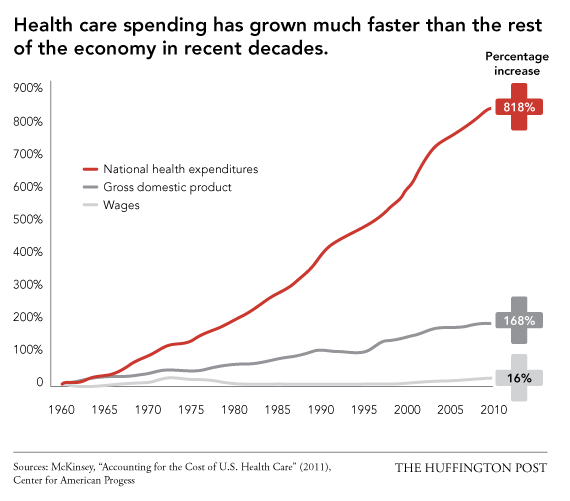To Kristen Mack, The Chicago Tribune, December 20, 2010
(The Chicago Tribune today released a Rahm Emanuel statement in which he promises to reduce City workers’ health care costs by $500M, or 20%, with “… just 4 percent of the city’s workforce accounting for roughly 65 percent of the city’s health care costs…”)
While I applaud this incentive, to make it sound like a fresh observation is a bit naive. For somebody who must have been heavily involved with the new Health Care Bill, Mr. Emanuel knows he has just elucidated the principles of Health Insurance: Many pay for the ailments of a few. He also will face the same obstacles as Mr. Obama’s Bill. Please don’t think I am not in favor of such a plan, irrespective of its proponents, I am.
There was a general census during my days as a surgeon in active practice that most of the Health Care Dollars spent in the US could be saved if everyone just lived a few months less. The problem of course being that most of us don’t know when those last few days have arrived, and – if knowing – we wouldn’t do everything in our power to extend! Terminal care (acute AND chronic) is extremely expensive and unlikely to become less so, especially since some astute political observers have branded end-of-life discussions as being led by “death squads“. After all, we are all entitled to the best of care (and we are), even if that includes a sensible and sensitive withdrawal of expensive treatment.
Lest you think I digressed beyond the scope of Mr. Emanuel’s press release, those who are most responsible for the costs of health care, are least likely to make the necessary changes (a conversion to a health life style) he advocates.
I heartily agree with these lofty ideas, as it certainly it would be a very effective way to apply the costs of health care to those whose illnesses were not self induced. Most of my patients were a victim of that other affliction, and while I could lament with them about the road traveled, it was my job (as it has always been for any physician) to provide the best of care whenever possible, including end-of-life counseling when that became appropriate.
Meanwhile I wish him luck with his plans; if he makes it to become Chicago’s next mayor, he might even stay in office long enough to observe the effects of a healthier Chicago City Work Force (I doubt it).
Let me know what you think,
Dr T

